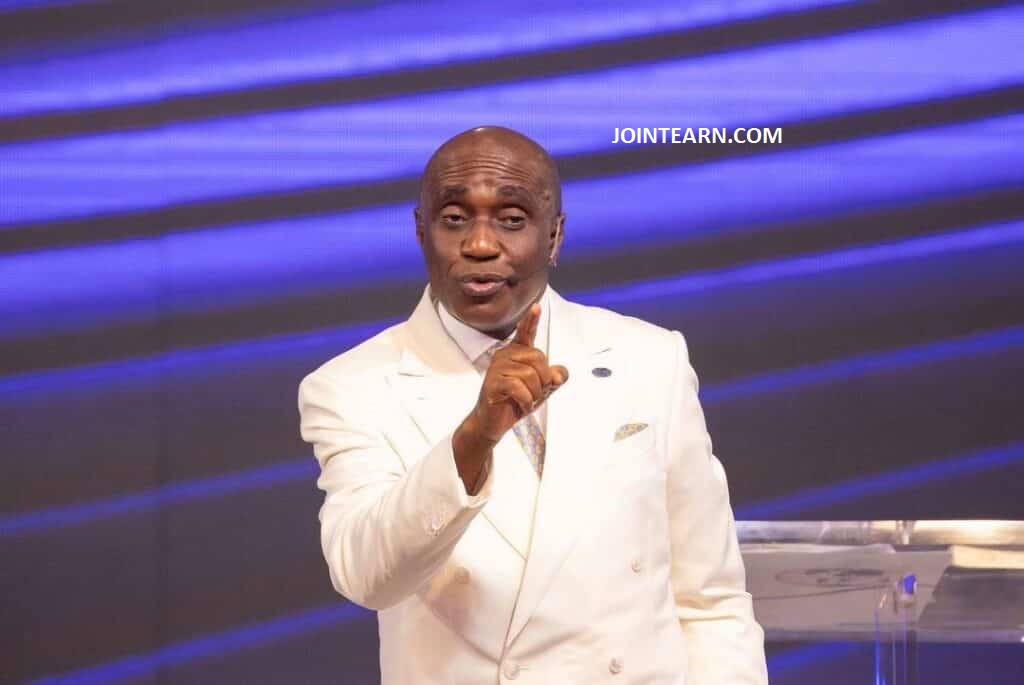Prominent Nigerian televangelist and founder of Salvation Ministries, Pastor David Ibiyeomie, has stirred widespread debate following a recent sermon in which he made remarks suggesting that it is unacceptable for a devout believer to be seen living or associating closely with the poor. The statement, delivered during a church service and captured in a now-viral video, has ignited strong reactions from both the Christian community and the wider public.
In the controversial clip, Pastor Ibiyeomie said, “If a believer mixes with the poor, everybody should be angry. What is he doing with the poor? He is a king. He should be among kings. Why is he mixing with the poor?” The statement, made with conviction, formed part of a larger message on prosperity, positioning, and divine association.
Interpretation and Intention
While some of his followers have defended the message, interpreting it as a call for believers to strive for greatness and avoid a poverty mindset, critics argue that the comment promotes elitism and undermines the very essence of compassion and humility preached by Jesus Christ.
Defending the context of the sermon, some church members claimed that Pastor Ibiyeomie was encouraging Christians to elevate their thinking and association to reflect their status as children of God, not to demean the poor. “It’s about mindset. He teaches us to think like royalty because that’s how the Bible sees us,” a church worker told reporters after the service.
Others interpreted the message as motivational, aimed at challenging believers not to settle in environments that reflect stagnation or poverty. “When he says, ‘Why is a believer mixing with the poor?’ he’s talking about not accepting poverty as your reality. It’s symbolic,” said another congregant.
Public Outrage and Backlash
However, the statement has been met with strong backlash across social media, with many Nigerians condemning what they described as an insensitive and anti-Christian ideology. Critics questioned how a preacher of the gospel could seemingly mock or discourage associations with the poor—whom the Bible repeatedly calls the Church to care for.
One Twitter user wrote: “Jesus ate with sinners, walked with the poor, healed beggars. But Pastor Ibiyeomie says believers should not mix with the poor? This is not Christianity. This is classism in the name of God.”
A Facebook user commented, “What kind of gospel is this? The poor are not second-class humans. Did Jesus not say, ‘Blessed are the poor in spirit’? Did he not feed the hungry and touch lepers?”
Many also expressed concern that such teachings contribute to the growing materialistic culture in some Nigerian churches, where wealth and social status are often perceived as indicators of divine approval.
Christian Leaders React
Some religious leaders have weighed in on the controversy. Reverend Michael Odu, a Lagos-based cleric, criticized the statement, calling it “theologically flawed and spiritually dangerous.”
“Our Lord and Savior Jesus Christ associated with the poor, healed the sick, fed the hungry, and uplifted the downtrodden. To imply that believers should avoid the poor is a betrayal of the gospel message,” Rev. Odu said.
He urged pastors to be mindful of their words, particularly in a country like Nigeria where millions live below the poverty line. “You cannot preach prosperity and forget compassion. They are not mutually exclusive,” he added.
Calls for Clarification
Amid the uproar, several voices have called on Pastor Ibiyeomie to clarify his remarks and provide the full context of the message. Some suggested that a statement or press release from the church would help to douse the tension and provide clarity.
As of the time of writing, there has been no official response or clarification from Salvation Ministries or Pastor Ibiyeomie’s media team. However, sources within the church hinted that the leadership may address the controversy during an upcoming Sunday service.
Bigger Conversation About Prosperity Teachings
This incident has also reignited broader conversations about prosperity theology in Nigeria. Critics argue that while messages of wealth and divine abundance can be empowering, they often neglect core Christian teachings about service, humility, and care for the marginalized.
“Churches must be careful not to glorify riches to the point where the poor are demonized or ignored,” said Dr. Yemi Falola, a theology lecturer at the University of Ibadan. “Christianity at its core is about love, mercy, and humility—not just success and money.”
Conclusion
Pastor David Ibiyeomie’s recent remarks have put the spotlight once again on the tensions between prosperity preaching and biblical humility. While his supporters defend the message as motivational and symbolic, critics view it as tone-deaf and harmful, especially in a nation struggling with economic hardship and inequality.
As reactions continue to pour in from all corners, many Nigerians hope that the pastor will address the issue directly and foster a more inclusive and compassionate interpretation of Christian teachings. Until then, the debate over wealth, spirituality, and social responsibility in Nigerian churches remains very much alive.











